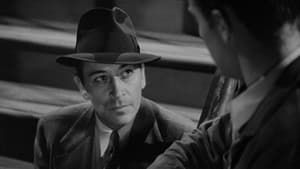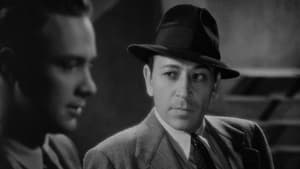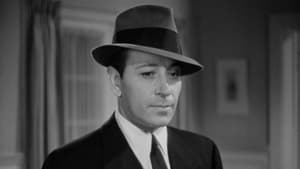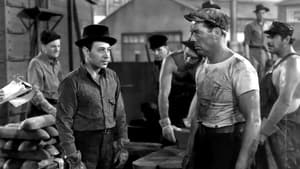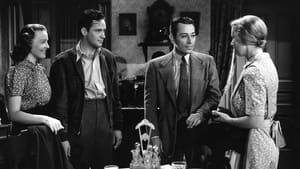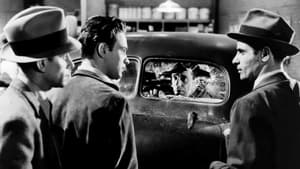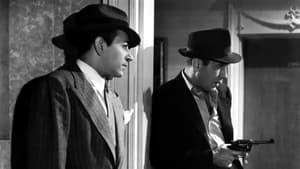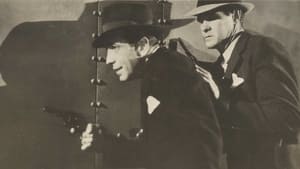Contact: info@alwanfilm.com
Video Sources 0 Views
- Watch trailer
- Invisible Stripes

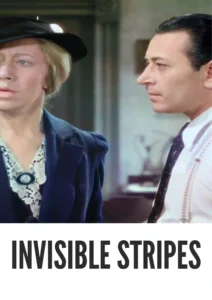
Synopsis
Table of Contents
ToggleReview: Invisible Stripes 1939 Colorized – A Gritty Crime Drama Unveiling the Shadows of Society

Introduction
“Invisible Stripes” (1939) emerges as a compelling narrative delving into the underbelly of society, exploring themes of redemption, loyalty, and the relentless pursuit of hope in the face of adversity. In this review, we embark on a journey through the murky streets of the urban landscape, uncovering the hidden truths and complex characters that populate this gripping crime drama.
Check The Full Colorized Movies List
Check Our Colorized Movies Trailer Channel
Understanding Invisible Stripes 1939 Colorized: Director, Cast, and Genre
Directed by Lloyd Bacon, “Invisible Stripes” (1939) showcases his adeptness in crafting gritty, atmospheric narratives that resonate with audiences. The film boasts a stellar cast, including George Raft, William Holden, and Humphrey Bogart, whose performances breathe life into the seedy world of crime and punishment. Blending elements of crime, drama, and noir, “Invisible Stripes” (1939) transports viewers to a realm where morality is a shifting landscape and redemption is a distant beacon on the horizon.
Exploring the World of Invisible Stripes 1939 Colorized: Plot and Characters
At its core, “Invisible Stripes” (1939) follows the trials and tribulations of a group of ex-convicts struggling to reintegrate into society after serving their time. Led by George Raft’s stoic protagonist, the film delves into the complexities of their relationships, the challenges they face, and the temptations that threaten to pull them back into a life of crime. As they navigate the treacherous waters of the criminal underworld, they are forced to confront their pasts and forge new paths forward in a world that offers little forgiveness and even less mercy.
The Art of Film Noir
“Invisible Stripes” (1939) serves as a prime example of the film noir genre, with its dark, brooding atmosphere and morally ambiguous characters. From its stark cinematography to its moody lighting and evocative score, the film immerses viewers in a world of shadows and secrets, where danger lurks around every corner and the line between right and wrong is blurred beyond recognition. Through its noirish aesthetic and morally complex narrative, “Invisible Stripes” (1939) invites audiences to explore the darkest recesses of the human psyche and confront the demons that lie within.
Early Crime Dramas: A Brief History
The history of crime dramas in cinema is a rich tapestry of storytelling, with filmmakers exploring the complexities of human nature and the allure of forbidden desires. From the early gangster films of the 1930s to the gritty neo-noir thrillers of today, the genre has evolved and adapted to reflect the changing times and shifting cultural attitudes. “Invisible Stripes” (1939) stands as a testament to the enduring popularity of crime dramas, captivating audiences with its compelling characters, suspenseful plots, and morally ambiguous themes.
Invisible Stripes 1939 and Its Impact on Crime Cinema
The release of “Invisible Stripes” (1939) marked a significant milestone in the evolution of crime cinema, introducing audiences to a new breed of antiheroes and challenging the conventions of traditional storytelling. With its nuanced characters, morally complex narrative, and atmospheric cinematography, the film set a new standard for the genre, inspiring countless filmmakers to explore similar themes and push the boundaries of cinematic storytelling. As a result, “Invisible Stripes” (1939) remains a seminal work in the annals of crime cinema, influencing generations of filmmakers and captivating audiences with its timeless tale of redemption and despair.
The Debate Over Crime Dramas
The debate over crime dramas in cinema is a contentious issue, with critics arguing that they glorify violence and promote antisocial behavior, while proponents maintain that they provide a valuable commentary on the human condition and offer insights into the darker aspects of society. “Invisible Stripes” (1939) navigates this debate with skill and subtlety, presenting its characters and their actions in a morally ambiguous light and challenging audiences to confront their own preconceptions and biases.
Examining Invisible Stripes 1939 as a Crime Drama
As with any crime drama, the impact of “Invisible Stripes” (1939) is a matter of personal interpretation. Some may view it as a cautionary tale about the dangers of succumbing to temptation and the consequences of one’s actions, while others may see it as a celebration of the indomitable human spirit and the power of redemption. Regardless of one’s interpretation, there’s no denying the film’s enduring power to captivate audiences and provoke thought, inviting viewers to ponder the complexities of morality and the nature of justice in an unjust world.
Influence and Legacy: Invisible Stripes 1939 Colorized’s Impact on Crime Cinema
“Invisible Stripes” (1939) has left an indelible mark on the world of crime cinema, inspiring countless filmmakers and shaping the trajectory of the genre for decades to come. From its morally complex characters to its atmospheric cinematography and suspenseful plot, the film continues to captivate audiences with its timeless themes and universal appeal. As a result, “Invisible Stripes” (1939) remains a beloved classic of the crime drama genre, cherished by cinephiles and casual moviegoers alike for its gripping storytelling and unforgettable characters.
Director’s Cinematic Legacy: Beyond Invisible Stripes 1939 Colorized
Lloyd Bacon’s influence extends far beyond “Invisible Stripes” (1939), with a diverse body of work that spans multiple genres and decades. From his early days as a silent film actor to his later career as a director, Bacon’s films are celebrated for their craftsmanship, storytelling, and timeless appeal. Through his groundbreaking work, Bacon has left an indelible imprint on the world of cinema, inspiring generations of filmmakers to follow in his footsteps and explore the depths of human experience and imagination.
Themes Explored in Invisible Stripes 1939 Colorized
“Invisible Stripes” (1939) explores a myriad of themes, from the nature of redemption and the pursuit of justice to the complexities of loyalty and betrayal. Through its richly drawn characters and morally complex narrative, the film invites viewers to ponder the timeless truths that bind us together as human beings and the enduring power of the human spirit to overcome even the greatest of obstacles. As audiences immerse themselves in the world of “Invisible Stripes” (1939), they are reminded of the universal themes that unite us all and the timeless lessons that resonate across generations.
Reception and Controversy Surrounding Invisible Stripes 1939 Colorized
Upon its release, “Invisible Stripes” (1939) received widespread critical acclaim, with many praising its gripping storytelling, atmospheric cinematography, and standout performances. However, the film’s exploration of morally ambiguous themes and its portrayal of criminal characters sparked controversy among some viewers, reigniting the age-old debate surrounding the depiction of violence and crime in cinema. Despite the controversy, “Invisible Stripes” (1939) remains a beloved classic of the crime drama genre, cherished by cinephiles and casual moviegoers alike for its compelling storytelling and enduring themes.
Where to Watch Invisible Stripes 1939 Colorized Online
For those eager to experience the timeless magic of “Invisible Stripes” (1939), the film is readily available on popular streaming platforms such as Netflix, Amazon Prime, and Hulu. Whether you choose to watch it in its original black and white format or the early colored version, “Invisible Stripes” (1939) promises to transport you to a world of intrigue and suspense, where danger lurks around every corner and the line between right and wrong is blurred beyond recognition.
FAQs About Invisible Stripes 1939 Colorized
Q: Is “Invisible Stripes” (1939) based on a true story? A: No, “Invisible Stripes” (1939) is a fictional narrative crafted by screenwriters Warren Duff and Jonathan Finn, who drew inspiration from real-life events and their own imaginations to create a compelling story of crime, redemption, and the pursuit of justice.
Q: Who are the main actors in “Invisible Stripes” (1939)? A: “Invisible Stripes” (1939) features a talented ensemble cast, including George Raft, William Holden, and Humphrey Bogart, whose performances bring the film’s characters to life with depth and authenticity.
Q: What awards did “Invisible Stripes” (1939) win? A: While “Invisible Stripes” (1939) did not win any major awards, it received critical acclaim for its gripping storytelling, atmospheric cinematography, and standout performances, solidifying its status as a beloved classic of the crime drama genre.
Q: Why was “Invisible Stripes” (1939) released in a colorized format? A: The decision to release “Invisible Stripes” (1939) in color was made to introduce the film to a new generation of viewers and enhance its visual appeal for modern audiences. While the choice to colorize the film sparked debate among purists, it ultimately allowed “Invisible Stripes” (1939) to reach a wider audience and ensure its continued relevance in the annals of cinematic history.
Conclusion
“Invisible Stripes” (1939) stands as a timeless classic of the crime drama genre, captivating audiences with its gripping storytelling, atmospheric cinematography, and standout performances. Whether viewed in its original black and white format or the early colored version, the film continues to resonate with viewers of all ages, offering a compelling exploration of the human condition and the timeless quest for redemption in a world filled with shadows and secrets. So, whether you’re a seasoned cinephile or a casual moviegoer, take a moment to revisit “Invisible Stripes” (1939) and experience the magic of classic cinema at its finest.

